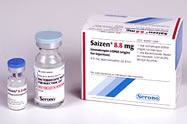Nanotechnology Urine Testing
There is a groundbreaking technology that seeks to tackle the issue of regulated use of HGH or human growth hormone. Nanotechnology urine testing was introduced at the 2008 Growth Hormone Summit held in Beverly Hills Hotel California last November 10, 2008. This was in conjunction with the forum regarding the barriers that hinder the use of HGH in sports.
Urine Testing Breakthrough
 Nanotechnology urine testing is being developed at the George Mason University. Dr. Don Catlin, a former UCLA Olympic Analytical Lab Director, and Dr. Lance Liotta, a former National Cancer Institute Center for Cancer Research Pathology Lab Chief, spearheaded the development of efficient urine testing technology that will allow HGH detection. This effort was launched to shut the current loopholes in drug testing. It is another way of exploring the barriers of HGH implementation in professional sports.
Nanotechnology urine testing is being developed at the George Mason University. Dr. Don Catlin, a former UCLA Olympic Analytical Lab Director, and Dr. Lance Liotta, a former National Cancer Institute Center for Cancer Research Pathology Lab Chief, spearheaded the development of efficient urine testing technology that will allow HGH detection. This effort was launched to shut the current loopholes in drug testing. It is another way of exploring the barriers of HGH implementation in professional sports.
Through the use of nanotechnology in binding and amplifying HGH in urine, it would be possible to detect HGH for a longer period of time. At present, HGH can only be detected through blood testing, which is also very limiting. It can only detect the HGH taken within 24-48 hours prior to blood screening.
The Growth Hormone Summit
Aside from the nanotechnology urine testing, which got a major introduction at the Growth Hormone Summit, there are also other associated issues tackled at the conference by renowned medical experts. Basically, the conference made clear the scientific, ethical, and legal concerns that involve HGH testing of athletes. First, there’s the thoughtful consideration of the current available methods and whatever the future holds for more promising techniques to identify HGH levels in one’s body. Second, there’s an effort of reaching an agreement regarding the most effective way of blood screening to spot HGH abuse. Third, there’s the identification of the current laws that regulate HGH use among individuals.
The call for futuristic strategies for HGH testing was enlightened by the fact that the current method available, through blood screening, is not found to be effective at all. During the 2008 Beijing Olympics, anti-doping expert Dr. Catlin himself used blood screening to test about 1,000 athletes for HGH. Not one blood sample tested positive and that further questions the effectiveness of blood screening as an HGH testing technique.
It wasn’t surprising, therefore, that the news about nanotechnology urine testing solicited excitement among those who attended the Growth Hormone Summit. It was definitely big news for them that a promising technique to identify HGH markers in urine is on the pipeline. It adds up to the excitement to know that Drs. Catlin and Liotta are increasingly confident that nanotechnology urine testing will not take long before offering an ideal HGH testing method that will be beneficial especially for professional athletes.
Interestingly, a doping defense attorney, Howard Jacobs, was also in attendance to raise the legal concerns regarding the issue of HGH in professional sports. Other anti-doping experts and scholars are also in attendance. To name a few, there’s the CEO of USADA or the United States Anti-Doping Agency, Travis Tygart; the director of the UCLA Olympic Analytical Laboratory, Anthony Butch; and the executive vice president for labor relations and human resources of MLB or the Major League Baseball.


Pingback: Human Growth Hormone (HGH) uses by bodybuilders and athletes In Sports.